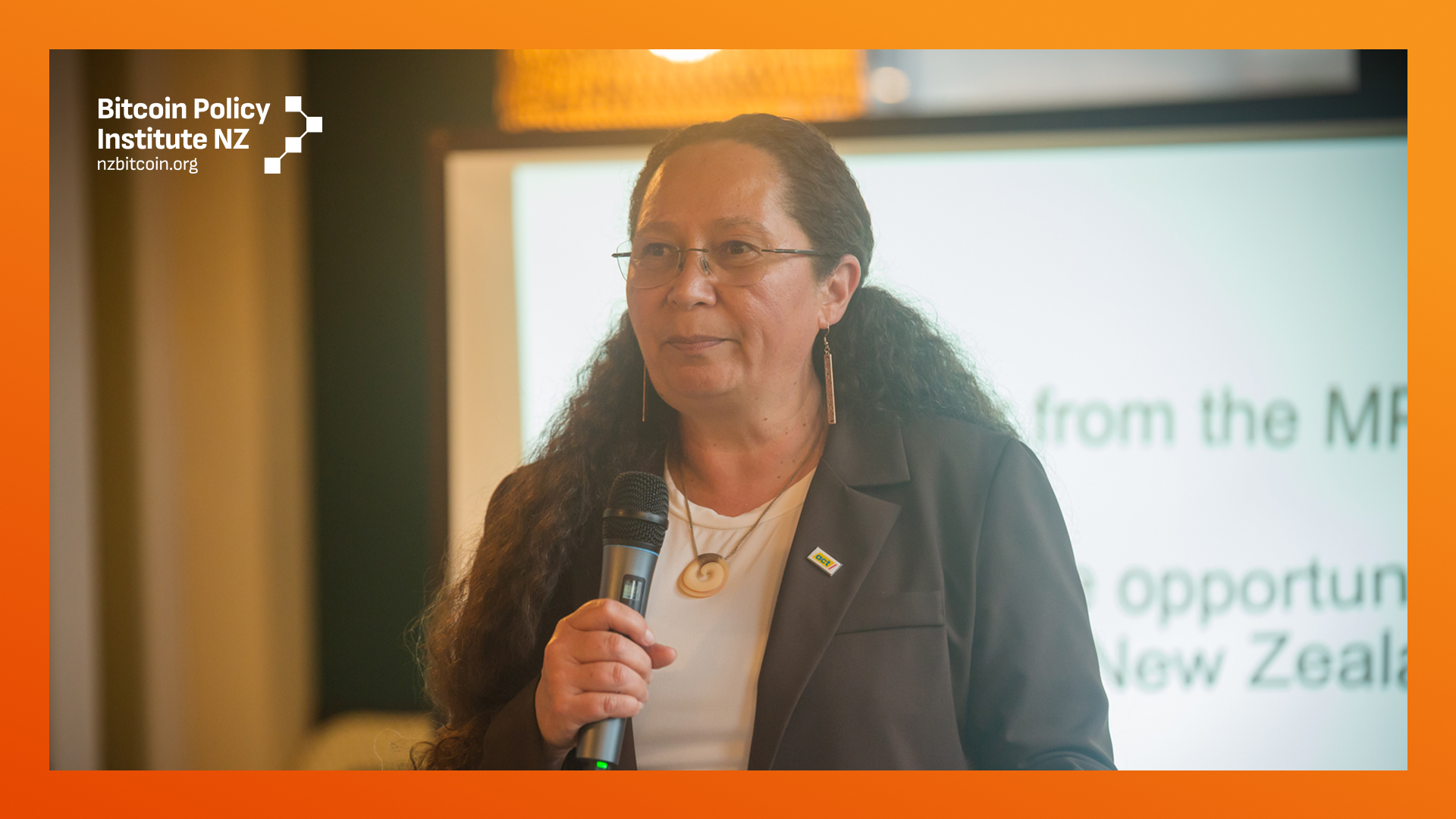
Lightning Bolts of Bitcoin Innovation Strike the New Zealand Capital

The Bitcoin Policy Institute New Zealand (BPINZ) marked its official launch on 12 November with an event at Chouchou, the newly refurbished bar and restaurant within the Circa Theatre on Wellington’s waterfront. The evening also saw the release of the institute’s first policy paper, Bitcoin as Money: De minimis tax exemption for Bitcoin payments under NZD $1000, which outlines a practical pathway for enabling Bitcoin innovation to flourish in New Zealand.
BPINZ, founded in July 2025, is focused on ensuring New Zealand can fully participate in the global shift toward digital, open-standard money. The launch event highlighted this in practice: Chouchou, like nearly 100 merchants across the country, accepts Bitcoin for payments at point of sale, and event attendees were able to purchase drinks using Bitcoin.
“The goal of the event was to celebrate our institute launching, but also to demonstrate how Bitcoin is money and can be used for payments,” said BPINZ Chairperson Kevin Whitmore.
“The big benefit to using Bitcoin is that it is a whole new way to transfer value, without the surcharges and high card fees that kiwi consumers and businesses are paying for. Bitcoin disrupts that completely.”
The event drew 40 VIP guests, including Hon Nicole McKee (Minister for Courts and Associate Minister of Justice), Joseph Mooney (MP for Southland), Greg Fleming (MP for Maungakiekie), and ACT List MP Cameron Luxton. Representatives from leading Bitcoin businesses, government departments, and other stakeholders also attended.
The institute observed that while Bitcoin's utility as a medium of exchange is continuously advancing, New Zealand tax regulations are not fit for purpose with Bitcoin’s monetary use case. Under existing law, every Bitcoin payment triggers a taxable event, meaning even a small purchase, such as a coffee, requires cost-basis accounting and potential capital gains or losses to be recorded. This means calculating the acquisition price of the Bitcoin and the disposal prices which can be incredibly onerous. A survey of New Zealand crypto users showed that nearly 70% believed they were non-compliant due to the complexity of tracking these everyday transactions.
“Bitcoin is money, but New Zealand’s current tax rules turn every small transaction into an accounting nightmare. When even a coffee requires making multiple calculations, genuine compliance becomes unrealistic. We need a fair and practical tax framework that enables everyday use.”
BPINZ’s new policy paper proposes a de minimis tax exemption for Bitcoin payments for everyday goods and services under NZD $1000, bringing New Zealand in line with emerging global best practice. Similar exemptions or favourable treatments already exist in the United States, Germany, and Portugal, where small transactions are not required to be reported for tax purposes.
The policy paper outlines several key benefits for New Zealand:
- Simpler tax compliance: Removing the need to calculate capital gains for small purchases makes practical everyday use possible and reduces administrative waste for taxpayers, accountants, and IR.
- Lower payment costs: Bitcoin payments can be significantly cheaper than traditional card networks, which cost New Zealand businesses around $1 billion annually.
- Greater competition and innovation: Reducing friction encourages fintech experimentation, supports new payment technologies, and positions New Zealand as an innovation-friendly hub.
- Alternative to housing as a savings mechanism: A solution to New Zealand's continual wealth divide when it comes to housing. Bitcoin offers an alternative way to save wealth with an easier entry point, meaning housing could be used for its utility and not as a store of wealth.
- Tourism and economic development: Destinations such as Queenstown and Christchurch already have more Bitcoin-accepting merchants than major global centres including Hong Kong and Singapore. Reducing tax friction strengthens New Zealand's appeal to high-value digital-money tourism.
- Monetary sovereignty and consumer choice: A de minimis exemption supports the use of open monetary standards and decreases dependence on high-fee, foreign-owned banks and payment networks.
The institute also notes that New Zealand was an early pioneer in digital payments with the introduction of EFTPOS in the 1980s, yet today most major New Zealand banks are Australian-owned with billions in profits leaving in NZ annually. Bitcoin offers an opportunity for renewed payments innovation grounded in open infrastructure.
BPINZ’s next steps include continued engagement with policymakers, regulatory agencies, industry leaders, and the public. The institute emphasises that a fair and modern tax framework is essential for enabling compliance, to avoid opportunities for abuse, and to clarify taxpayer obligations while allowing Bitcoin to function as money.
“It is important that this conversation about Bitcoin involves key stakeholders from across government and the private sector, and that it is bipartisan in its approach. Bitcoin is better money for everyone,” Whitmore said.
The full policy paper, including international case studies, design considerations for the NZD $1000 threshold, and recommendations for implementation, is available at nzbitcoin.org.
ENDS
Additional Photos




Support The Transformation of Value

The Transformation of Value (TTOV)
New Zealand / Japan Podcast & Media

